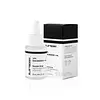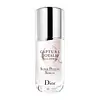What's inside
What's inside
 Key Ingredients
Key Ingredients

 Benefits
Benefits

 Concerns
Concerns

 Ingredients Side-by-side
Ingredients Side-by-side

Water
Skin ConditioningNiacinamide
SmoothingButylene Glycol
HumectantAcetyl Glucosamine
Skin ConditioningXylitylglucoside
HumectantHydrolyzed Soy Protein
HumectantAnhydroxylitol
HumectantSodium Hyaluronate
HumectantSodium Hyaluronate Crosspolymer
HumectantSodium Acetylated Hyaluronate
HumectantSodium Carboxymethyl Beta-Glucan
CleansingPPG-20 Methyl Glucose Ether
Skin ConditioningXylitol
HumectantTetrasodium EDTA
Sodium Ascorbyl Phosphate
AntioxidantPanthenol
Skin ConditioningCitric Acid
BufferingPentylene Glycol
Skin ConditioningCentella Asiatica Extract
CleansingGlycerin
HumectantPhenoxyethanol
PreservativeChlorphenesin
AntimicrobialPolygonum Cuspidatum Root Extract
AntioxidantScutellaria Baicalensis Root Extract
AstringentCamellia Sinensis Leaf Extract
AntimicrobialGlycyrrhiza Glabra Root Extract
BleachingChamomilla Recutita Flower Extract
MaskingRosmarinus Officinalis Leaf Extract
AntimicrobialHydrolyzed Sodium Hyaluronate
Skin ConditioningEthylhexylglycerin
Skin ConditioningWater, Niacinamide, Butylene Glycol, Acetyl Glucosamine, Xylitylglucoside, Hydrolyzed Soy Protein, Anhydroxylitol, Sodium Hyaluronate, Sodium Hyaluronate Crosspolymer, Sodium Acetylated Hyaluronate, Sodium Carboxymethyl Beta-Glucan, PPG-20 Methyl Glucose Ether, Xylitol, Tetrasodium EDTA, Sodium Ascorbyl Phosphate, Panthenol, Citric Acid, Pentylene Glycol, Centella Asiatica Extract, Glycerin, Phenoxyethanol, Chlorphenesin, Polygonum Cuspidatum Root Extract, Scutellaria Baicalensis Root Extract, Camellia Sinensis Leaf Extract, Glycyrrhiza Glabra Root Extract, Chamomilla Recutita Flower Extract, Rosmarinus Officinalis Leaf Extract, Hydrolyzed Sodium Hyaluronate, Ethylhexylglycerin
Water
Skin ConditioningGlycerin
HumectantNiacinamide
SmoothingButylene Glycol
HumectantSqualane
EmollientLimnanthes Alba Seed Oil
Skin ConditioningPentylene Glycol
Skin ConditioningAlcohol
AntimicrobialPropanediol
SolventBetaine
HumectantDiglycerin
HumectantLauroyl Lysine
Skin ConditioningPEG-8
HumectantAframomum Angustifolium Seed Extract
Skin ConditioningPaeonia Lactiflora Root Extract
Skin ConditioningLilium Candidum Bulb Extract
Skin ConditioningJasminum Officinale Flower Extract
MaskingSodium Surfactin
CleansingSodium Acetylated Hyaluronate
HumectantHydrolyzed Soy Protein
HumectantAscorbyl Glucoside
AntioxidantSodium Tocopheryl Phosphate
AntioxidantAdenosine
Skin ConditioningXylitol
HumectantTrehalose
HumectantPalmaria Palmata Extract
Skin ProtectingSodium Hyaluronate
HumectantHydroxyethyl Acrylate/Sodium Acryloyldimethyl Taurate Copolymer
Emulsion StabilisingBoron Nitride
AbsorbentCaprylyl Glycol
EmollientHydrogenated Lecithin
EmulsifyingParfum
MaskingChlorphenesin
AntimicrobialAlcaligenes Polysaccharides
EmollientPolysorbate 60
EmulsifyingSorbitan Isostearate
EmulsifyingCI 14700
Cosmetic ColorantCI 60730
Cosmetic ColorantSodium Benzoate
MaskingPotassium Sorbate
PreservativeTocopherol
AntioxidantWater, Glycerin, Niacinamide, Butylene Glycol, Squalane, Limnanthes Alba Seed Oil, Pentylene Glycol, Alcohol, Propanediol, Betaine, Diglycerin, Lauroyl Lysine, PEG-8, Aframomum Angustifolium Seed Extract, Paeonia Lactiflora Root Extract, Lilium Candidum Bulb Extract, Jasminum Officinale Flower Extract, Sodium Surfactin, Sodium Acetylated Hyaluronate, Hydrolyzed Soy Protein, Ascorbyl Glucoside, Sodium Tocopheryl Phosphate, Adenosine, Xylitol, Trehalose, Palmaria Palmata Extract, Sodium Hyaluronate, Hydroxyethyl Acrylate/Sodium Acryloyldimethyl Taurate Copolymer, Boron Nitride, Caprylyl Glycol, Hydrogenated Lecithin, Parfum, Chlorphenesin, Alcaligenes Polysaccharides, Polysorbate 60, Sorbitan Isostearate, CI 14700, CI 60730, Sodium Benzoate, Potassium Sorbate, Tocopherol
 Reviews
Reviews

Ingredients Explained
These ingredients are found in both products.
Ingredients higher up in an ingredient list are typically present in a larger amount.
Butylene Glycol (or BG) is used within cosmetic products for a few different reasons:
Overall, Butylene Glycol is a safe and well-rounded ingredient that works well with other ingredients.
Though this ingredient works well with most skin types, some people with sensitive skin may experience a reaction such as allergic rashes, closed comedones, or itchiness.
Learn more about Butylene GlycolChlorphenesin is a synthetic preservative. It helps protect a product against bacteria in order to extend shelf life. In most cases, Chlorphenesin is paired with other preservatives such as phenoxyethanol and caprylyl glycol.
Chlorphenesin is a biocide. This means it is able to help fight the microorganisms on our skin. It is also able to fight odor-releasing bacteria.
Chlorphenesin is soluble in both water and glycerin.
Studies show Chlorphenesin is easily absorbed by our skin. You should speak with a skincare professional if you have concerns about using Chlorphenesin.
Learn more about ChlorphenesinGlycerin is already naturally found in your skin. It helps moisturize and protect your skin.
A study from 2016 found glycerin to be more effective as a humectant than AHAs and hyaluronic acid.
As a humectant, it helps the skin stay hydrated by pulling moisture to your skin. The low molecular weight of glycerin allows it to pull moisture into the deeper layers of your skin.
Hydrated skin improves your skin barrier; Your skin barrier helps protect against irritants and bacteria.
Glycerin has also been found to have antimicrobial and antiviral properties. Due to these properties, glycerin is often used in wound and burn treatments.
In cosmetics, glycerin is usually derived from plants such as soybean or palm. However, it can also be sourced from animals, such as tallow or animal fat.
This ingredient is organic, colorless, odorless, and non-toxic.
Glycerin is the name for this ingredient in American English. British English uses Glycerol/Glycerine.
Learn more about GlycerinHydrolyzed Soy Protein is a vegan protein made to mimic hydrolyzed collagen. It is created from soy, or glycine soja.
This ingredient is a humectant, meaning it helps hydrate the skin by binding to water. According to a manufacturer, it is also a great hair conditioner.
Read more about hydrolyzed collagen here.
Learn more about Hydrolyzed Soy ProteinNiacinamide is a multitasking form of vitamin B3 that strengthens the skin barrier, reduces pores and dark spots, regulates oil, and improves signs of aging.
And the best part? It's gentle and well-tolerated by most skin types, including sensitive and reactive skin.
You might have heard of "niacin flush", or the reddening of skin that causes itchiness. Niacinamide has not been found to cause this.
In very rare cases, some individuals may not be able to tolerate niacinamide at all or experience an allergic reaction to it.
If you are experiencing flaking, irritation, and dryness with this ingredient, be sure to double check all your products as this ingredient can be found in all categories of skincare.
When incorporating niacinamide into your routine, look out for concentration amounts. Typically, 5% niacinamide provides benefits such as fading dark spots. However, if you have sensitive skin, it is better to begin with a smaller concentration.
When you apply niacinamide to your skin, your body converts it into nicotinamide adenine dinucleotide (NAD). NAD is an essential coenzyme that is already found in your cells as "fuel" and powers countless biological processes.
In your skin, NAD helps repair cell damage, produce new healthy cells, support collagen production, strengthen the skin barrier, and fight environmental stressors (like UV and pollution).
Our natural NAD levels start to decline with age, leading to slower skin repair, visible aging, and a weaker skin barrier. By providing your skin niacinamide, you're recharging your skin's NAD levels. This leads to stronger, healthier, and younger looking skin.
Another name for vitamin B3 is nicotinamide. This vitamin is water-soluble and our bodies don't store it. We obtain Vitamin B3 from either food or skincare. Meat, fish, wheat, yeast, and leafy greens contain vitamin B3.
The type of niacinamide used in skincare is synthetically created.
Learn more about NiacinamidePentylene glycol is typically used within a product to thicken it. It also adds a smooth, soft, and moisturizing feel to the product. It is naturally found in plants such as sugar beets.
The hydrophilic trait of Pentylene Glycol makes it a humectant. As a humectant, Pentylene Glycol helps draw moisture from the air to your skin. This can help keep your skin hydrated.
This property also makes Pentylene Glycol a great texture enhancer. It can also help thicken or stabilize a product.
Pentylene Glycol also acts as a mild preservative and helps to keep a product microbe-free.
Some people may experience mild eye and skin irritation from Pentylene Glycol. We always recommend speaking with a professional about using this ingredient in your routine.
Pentylene Glycol has a low molecular weight and is part of the 1,2-glycol family.
Learn more about Pentylene GlycolSodium Acetylated Hyaluronate is a type of Hyaluronic Acid.
Hyaluronic Acids help moisturize, soothe, and protect the skin.
Read about common types of Hyaluronic Acid here:
Sodium Hyaluronate
Hydrolyzed Hyaluronic Acid
Hyaluronic Acid
Sodium Hyaluronate is hyaluronic acid's salt form. It is commonly derived from the sodium salt of hyaluronic acid.
Like hyaluronic acid, it is great at holding water and acts as a humectant. This makes it a great skin hydrating ingredient.
Sodium Hyaluronate is naturally occurring in our bodies and is mostly found in eye fluid and joints.
These are some other common types of Hyaluronic Acid:
Learn more about Sodium HyaluronateWater. It's the most common cosmetic ingredient of all. You'll usually see it at the top of ingredient lists, meaning that it makes up the largest part of the product.
So why is it so popular? Water most often acts as a solvent - this means that it helps dissolve other ingredients into the formulation.
You'll also recognize water as that liquid we all need to stay alive. If you see this, drink a glass of water. Stay hydrated!
Learn more about WaterXylitol is a humectant and prebiotic. It can help with dry skin.
In studies, xylitol has been shown to improve dry skin. It decreased transepidermal water loss, or when water passes through the skin and evaporates. Xylitol also showed to help improve the biomechanical properties of the skin barrier.
The prebiotic property of xylitol may also help reinforce our skin's natural microbiome. Having a healthy microbiome prevents infection by bad bacteria and helps with hydration.
As a humectant, Xylitol helps draw moisture from both the air and from deeper skin layers. This helps keep skin hydrated.
Xylitol is a sugar alcohol and commonly used as a sugar substitute. It is naturally occurring in plants such as strawberries and pumpkin.
Learn more about Xylitol